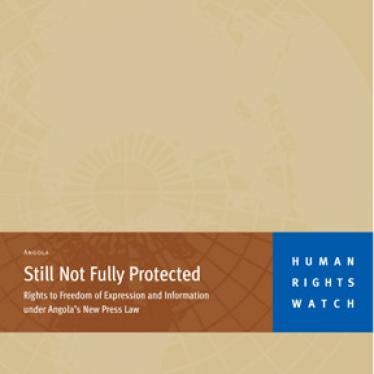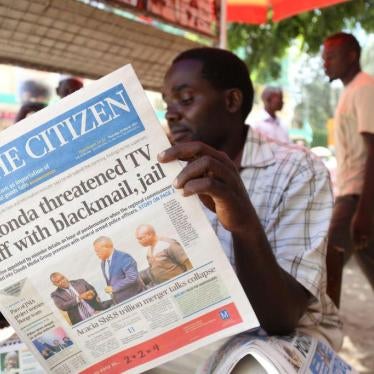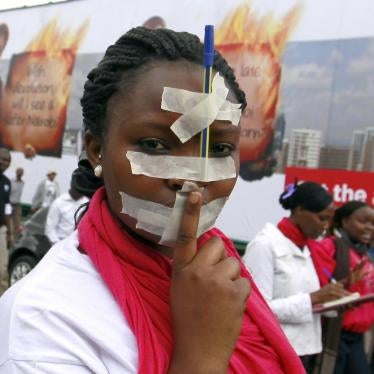As Angolans prepare to vote next year in the country’s first elections since 1992, the government’s new press law promises much-needed reforms but still fails to protect freedom of the press adequately, Human Rights Watch said in a report released today
The Angolan government’s dismal record of protecting freedom of expression makes providing press freedom critical to ensuring that the press can freely report in the run-up to national elections expected in 2007.
In the 25-page report,
“Unless the Angolan government brings its press law up to international standards, freedom of the press in the election period will be compromised,” said Peter Takirambudde, Africa director at Human Rights Watch. “The government urgently needs to approve further legislation to fully implement reforms already set out in its new Press Law.”
Key improvements in the Press Law include the elimination of the state monopoly over television broadcasting and the creation of a public broadcasting service. However, the licensing procedures it sets out for private broadcasting are overly bureaucratic and largely subject to the discretion of government rather than independent bodies, as recommended by regional standards on freedom of expression.
The Press Law also defines criminal conduct by media professionals in unclear and sweeping terms, and establishes excessive penalties for such crimes. Contrary to best practices in protecting free expression, the law continues to criminalize defamation.
“The new law has a number of positive aspects, but they did not include everything the local media requested,” an Angolan journalist told Human Rights Watch. “There is too much room for the government to bring lawsuits against journalists due to what they are publishing. The penalties are too harsh.”
Human Rights Watch also found that significant obstacles remain in the circulation of private newspapers throughout the country. These include excessive taxation of newsprint, high transportation costs and inaccessibility, and a few cases in which unidentified officials in some provinces confiscated private newspapers upon arrival when they publicized articles critical of the government.
Several provisions of the Press Law are formulated in general terms and left to be detailed by subsequent implementing laws and regulations. As long as such legislation is still pending, those provisions remain largely inoperable. Provisions that cannot yet be fully implemented include the procedures for applications for television and radio broadcasting licenses, and the establishment and independent functioning of the National Council on Media Communication. The national council is an independent body charged with “safeguarding the objectivity and impartiality of information, as well as the freedom of expression and thought in the press.”
“The government should establish clear, fair and transparent licensing procedures for private television and radio broadcasting, and ensure supervision of the licensing process by an independent body,” said Takirambudde. “Critically, the government must draft laws and regulations to ensure that the public service TV and radio and the National Council on Media Communication are independent from political or other interference.”
Additional regulations are also crucial to implement provisions regarding the Statute of Journalists, which sets forth journalist’s rights and duties and the conditions for issuing, renewing, suspending and confiscating press cards. The Commission on the Press Card and Ethics, the body comprised of journalists and responsible for issuing press cards and supervising the application of the Journalists Code of Conduct, also needs regulation to operate.
Human Rights Watch called on the Angolan government to improve the legal framework for press freedom by decriminalizing defamation in both the Press Law and Criminal Code, and by promptly enacting the laws and regulations required to fully implement the Press Law.
Human Rights Watch also called on the Angolan authorities to involve associations of journalists and other civil society organizations in the drafting of implementing laws and regulations to the Press Law, including the drafting of the Statute of Journalists, which will be key to regulating the practice of journalism.







